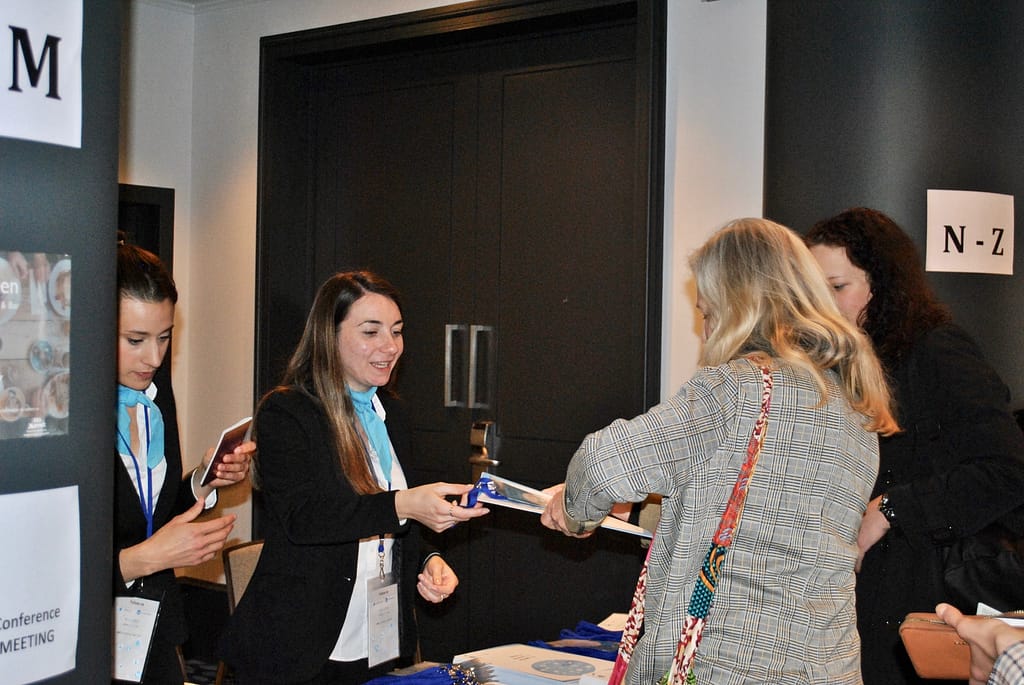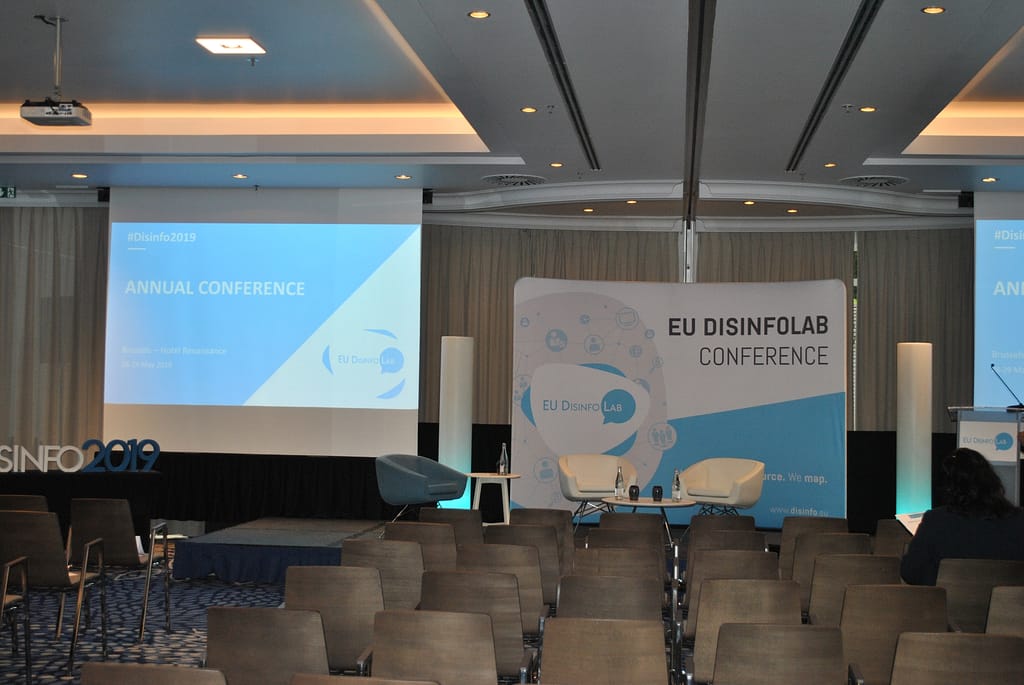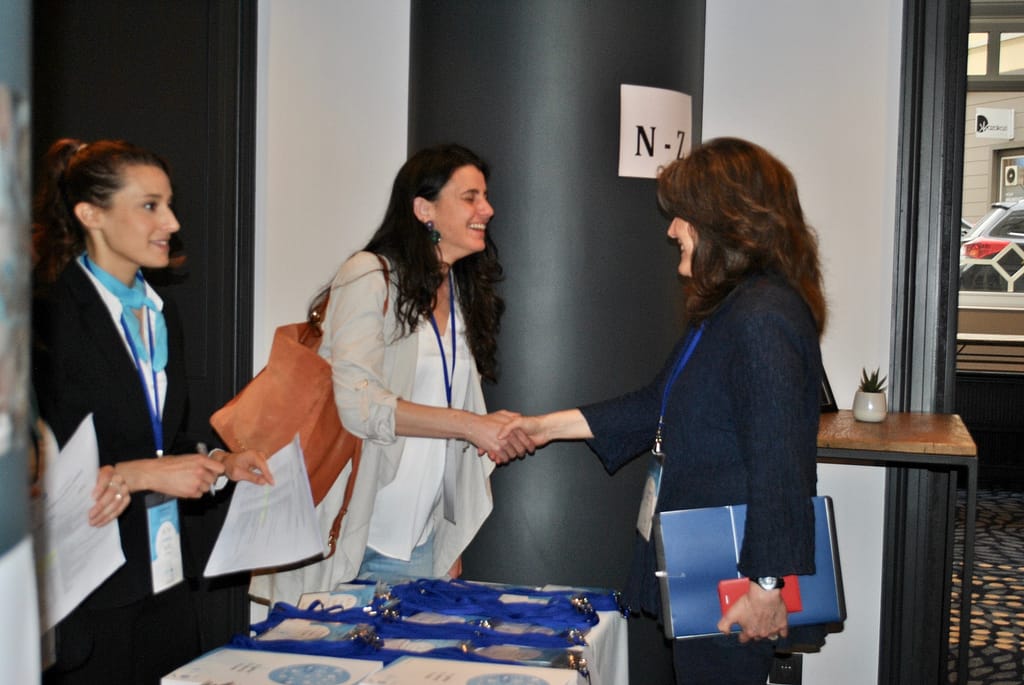Between the 28-29th May in Brussels, the EU DisinfoLab hosted a major event gathering the community of journalists, civil society members, tech companies, and government representatives working on disinformation. Missed the event? You can read the key takeaways from the conference on Twitter under the hashtag #Disinfo2019.
The conference kicked off with Camille François interviewing Benjamin Cazenoves, survivor of Paris Bataclan attacks. The speakers spoke about how violent extremism and hate speech can collapse into one another, causing real harm to both individuals and society. The introductory panel discussed how disinformation strategies influence our brains. Case studies on the 2016 US elections, 2019 EU elections, Ukraine and Iran were presented, as well as different tools and methodologies used to uncover disinformation techniques. Moreover, Google and Twitter put forward their actions undertaken to mitigate disinformation on their platforms. Nonetheless, one of the key opinions of the session from discussing the framework for regulating disinformation was that the EU Code of Practice is not enough.
Concluding the conference, the EU Commissioner for the Security Union, Sir Julian King, summed up the main actions taken by the European Commission in tackling disinformation. Even though it is too early to measure the level of interference in the EP elections, the Commissioner noted that political disinformation remains a formidable challenge, as the threat environment is still evolving.
As promised, you can download the publicly available presentations and photos down below. In the meantime, do not hesitate to refer to the conference programme for the full list of speakers.
Disclaimer: The opinions expressed in the presentations do not represent the opinion of EU DisinfoLab.
Opening: Disinformation and terrorism
Introductory keynotes: International manipulation of information
Session 1 – Understanding disinformation: the roots of information, manipulation and comparative perspectives
Session 2 – Disinformation, global and continental case studies
Session 3 – Tech companies: what is the roadmap to fight disinformation?
No slides available
Session 4 – The transatlantic vision for disinformation
Session 5 – Tools and methodologies for monitoring and debunking disinformation
Session 6 – Raising expertise and resilience in civil society
James Le Mesurier, Founder, Mayday Rescue Foundation (available upon request)
Session 7 – Organised in the framework of Erasmus + project “Open Your Eyes” – Toolkits & Games. What are the new paths that exist for media education?
Here you can find the media coverage of the EU DisinfoLab Conference:
- https://www.eldiario.es/sociedad/Ninos-abuelos-victimas-manipulacion-informativa_0_904310562.html
- http://euroefe.euractiv.es/1311_actualidad/6160680_la-ce-ve-indicios-de-campana-de-bulos-anti-islam-y-pro-vox-en-comicios-europeos.html
- Mention of the conference on ABC.com and The Next Web
- https://www.euractiv.com/section/digital/news/digital-brief-no-letting-down-the-guard/
- https://thenextweb.com/insider/2019/06/14/youtube-recommendations-toxic-algorithm-google-ai/



























































